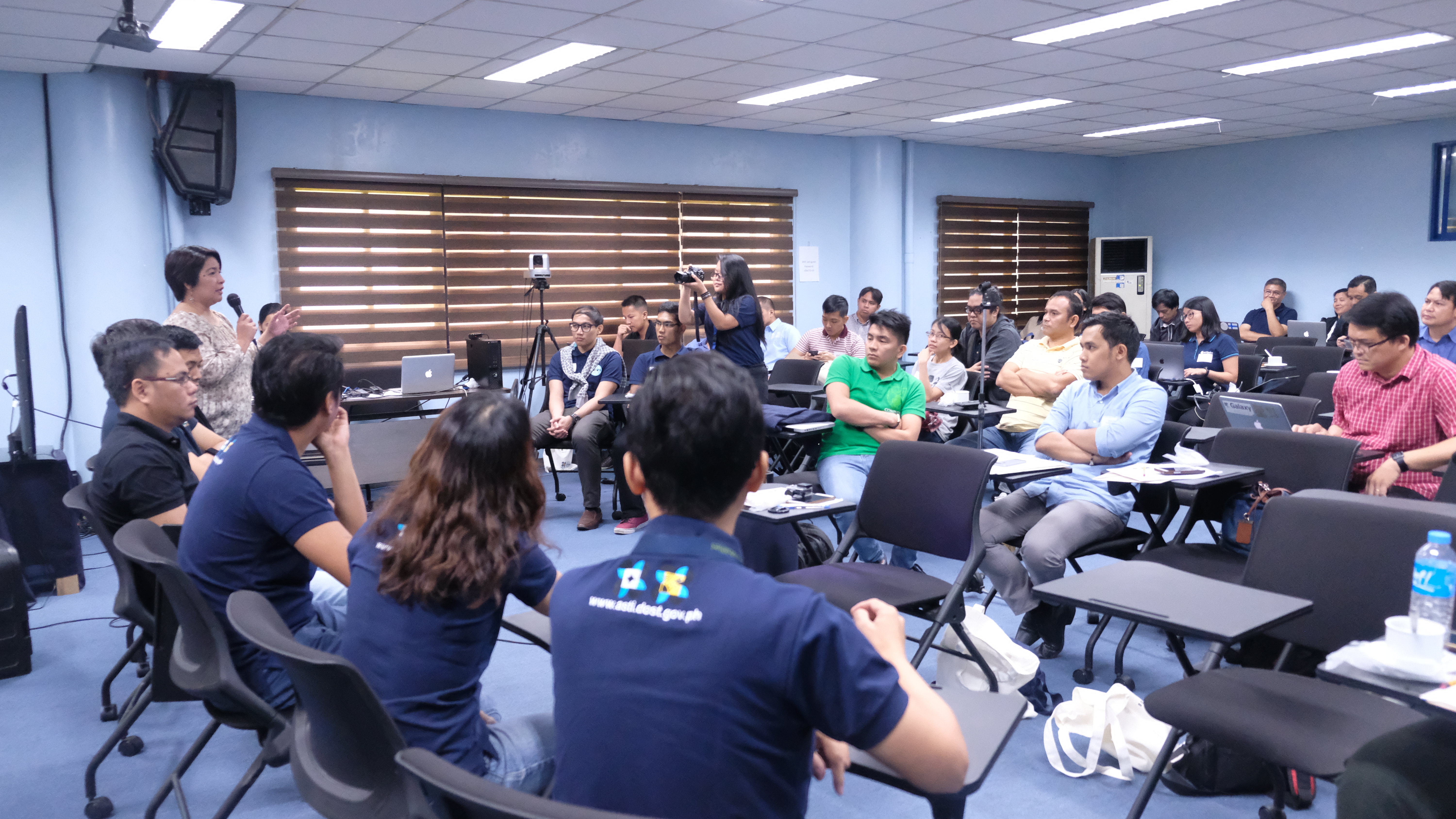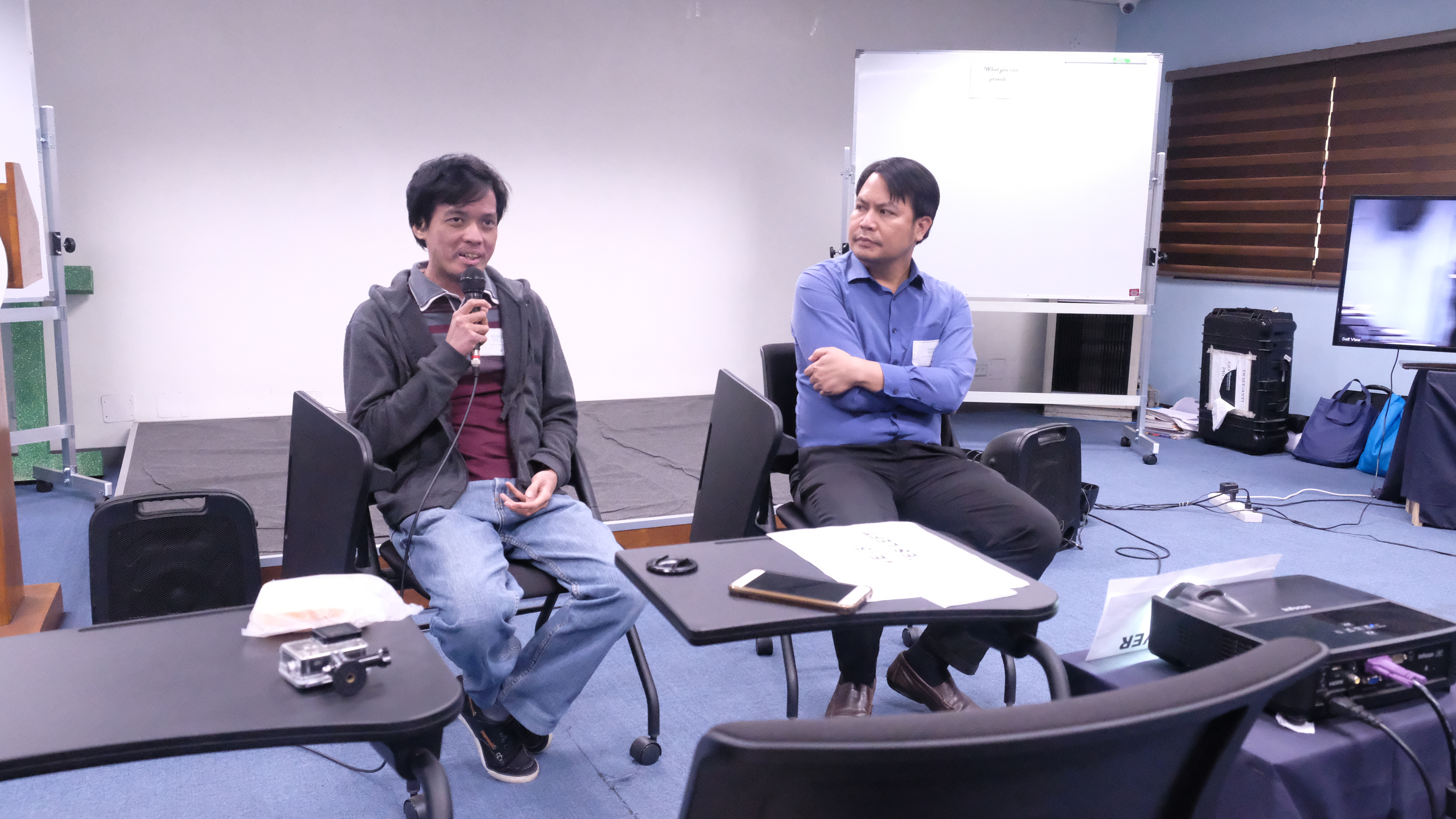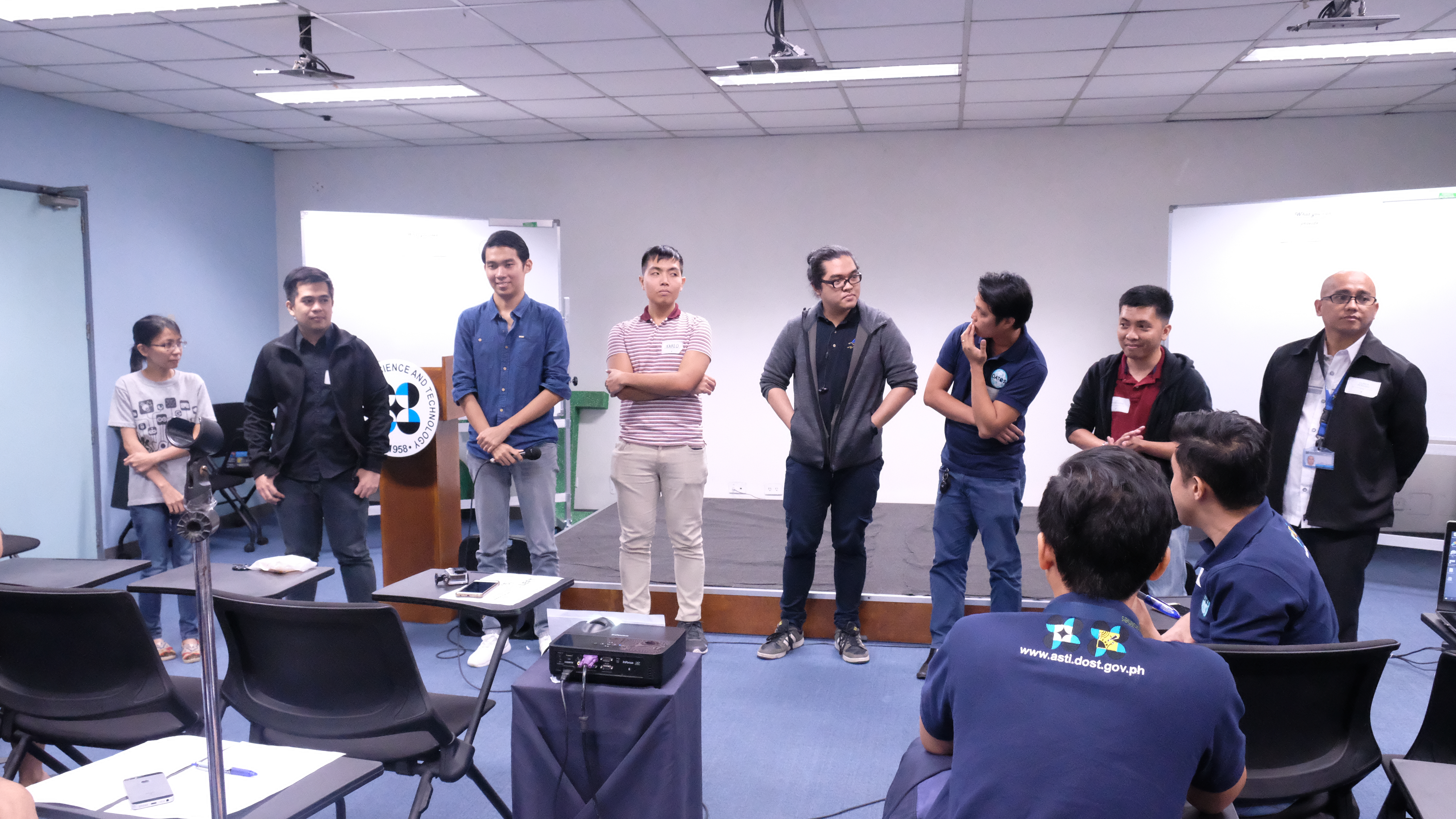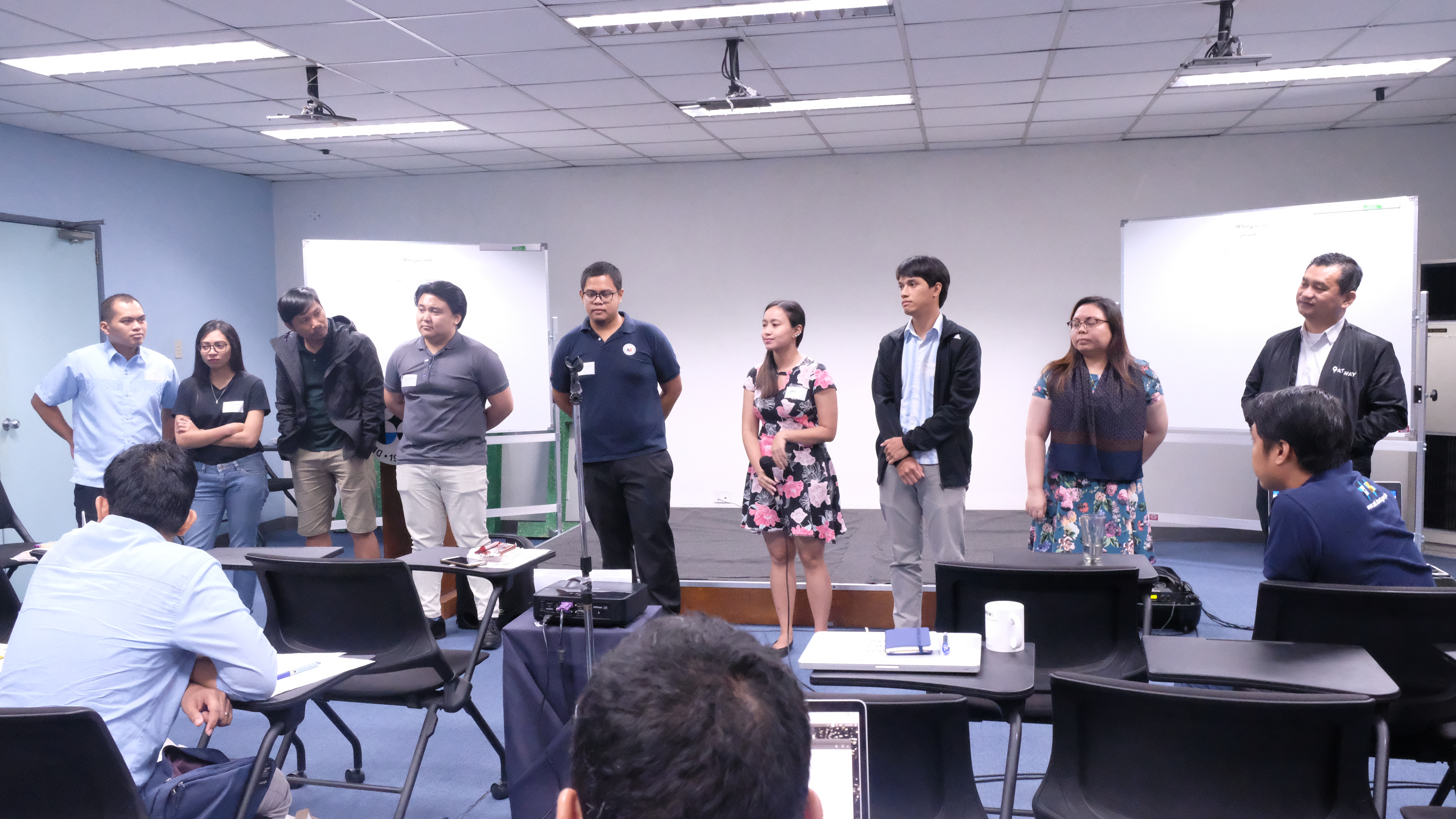
28 AUGUST 2018—Members of the DATOS Project under the Department of Science and Technology’s Advanced Science and Technology Institute (DOST-ASTI) gathered researchers, stakeholders, and established data scientists to share their knowledge, expertise, and their past and ongoing R&D projects over a cup of coffee in a symposium titled “Data Brew: Data Science Kapihan” held in the DOST-ASTI Training Room.
DOST-ASTI Director Joel Joseph Marciano, Jr. opened the kapihan stating that “this initiative is to ramp up to meet the challenges that our country faces in terms of what data science, data analytics, and artificial intelligence (AI) can support; that is why we’re reaching out. This is really our effort for you to get to know us, for us to get to know you, and to figure out ways for which we can work together.”
In the morning session of the symposium, project leaders and members presented DOST-ASTI data-science-related projects. Jericho Capito discussed about the institution’s weather stations and the Understanding Lighting and Thunderstorms (ULAT) Project. Harold Bryan Paler talked about the Philippine Earth Data Resource and Observation (PEDRO) Center, a satellite ground receiving station (GRS) that receives and provides space-borne imagery. Jay Samuel Combinido’s presentation was about the S&T infrastructures that they developed: the Philippine Research, Education and Government Information Network (PREGINET), a system that provides high-speed network to facilitate research and education collaborations among academic, government, and research institutions and the Computing and Archiving Research Environment (CoARE), a data storage facility and also serve as high-performance cloud computing facility that allows free access of its services to students, researchers, and data analysts. Roel M. Dela Cruz shared that the DATOS Project aims to address the need for a 24/7 help desk for remote sensing and data science that can support critical activities on disaster mitigation, analysis, and advise using data from CoARE and PEDRO. Jeffrey Aborot presented the details and results of the ASTI Labelling Machine (ALaM) Project. Guided by Balik Scientist Dr. Jose U. Rubrico, the ALam Project’s goal is to develop deep learning models that utilize labeled and georeferenced satellite images as input data.
DOST-ASTI resource speakers answering questions from the ‘kapihan’ participants
In addition to these presentations, resource speakers from other public and private institutions contributed to the gathering as well. Dr. Delfin Jay Sabido and Adrian Cayaco from Stratpoint Technologies Inc., a digital enterprise software solutions company, imparted the importance of AI and machine learning in an enterprise. As the International Rice Research Institute (IRRI) is the biggest user of CoARE, Jeffrey Detras, a bioinformatics specialist from IRRI, shared that genomics data is available for analysis, interoperability or the unrestricted sharing of resources between different systems is essential to collaboration, that internship and special problem opportunities are available in his division, and lastly, that AI applications are new to rice researches.

Adrian Cayao, Jeffrey Detras, and Dr. Delfin Jay Sabido await questions from the participants on their presentations
Dr. Enrico Merle, IT Manager of the United Nations Fund for Population Activities (UNFPA), continued the exchange of ideas by showing and emphasizing that population data is essential to a country’s progress and development. The last resource speaker for the morning session is Eugene Villar, President of OpenStreetMap (OSM) Philippines. OSM is a crowd-sourcing mapping effort done by volunteers and is released with an open content. Villar believes that OSM promotes “better demographic intelligence that leads to a better Philippines.”

Eugene Villar and Dr. Enrico Merle during the open forum
In the afternoon session, the ‘Lightning Talks’ commenced wherein each speaker is given 5 minutes for their presentations. 17 resource speakers from various academic, public, and private institutions talked about data science in relation to various fields.
These are the speakers and the topics they presented:
1.Elmer Peramo – Deep Learning with R
2. JC Albert Peralta – Breaking Roads: Impact of Transportation Network Damage on Disaster Relief Logistics
3. Karlo Dela Cruz – Reducing Airline Operating Cost through Improved Forecast Accuracy
4. Patrick Lucanas – Iraya Technologies
5. Shiela Jimenez – Interactive Data Visualization
6. Rafaello Baluyot – Embedding in Natural Language Processing
7. Roel Dela Cruz – Multi-temporal Thermal Analysis of Heavily-Urbanized and Vegetated Areas in Metro Manila
8. Jay Samuel Ombinido – A Convolutional Neural Network Approach for Estimating Tropical Cyclone Intensity Using Satellite-based Infrared Images
9. Danielle Gayare – Linksight on Data Cleaning
10. Karen Faye Bathan – Logistic Regression for Employees’ Attrition Prediction
11. Diony Gullen – The Future of Audit: How Technology is Changing the Audit
12. Rudolph Joshua Candare – Center for Resource Assessment, Analytics and Emerging Technologies of the CARAGA State University
13. Feye Andal – University of the Philippines Resilience Institute – Youth Mappers
14. Allan Sioson – Gateway Software
15. Gabriel Lorenzo Santos – Machine Learning Reinvents Business
16. Narod Eco – Data Science Application in Geoscience Research
17.James Miraflor – Tala ng Bayan Laban sa Kahirapan (People’s Anti-Poverty Database or TALAMBAYAN)

Resource speakers from the first half of the ‘Lightning Talks’

Resource speakers from the second half of the ‘Lightning Talks’
After the ‘Lightning Talks’, a data science needs and capabilities identification activity was conducted. The participants were encouraged to write down what they need from and what they can give to the data science community, hopefully paving the way for more collaborations between data scientists.
To end the symposium, Jo Brianne Briones, a member of the DATOS team, thanked the participants for making the kapihan a success. The DATOS team hopes that this will jump-start data science discussions and collaborations.
The initiatives of the DATOS team are implemented by DOST-ASTI and are monitored and funded by the Philippine Council for Industry, Energy, and Emerging Technology Research and Development (DOST-PCIEERD).




